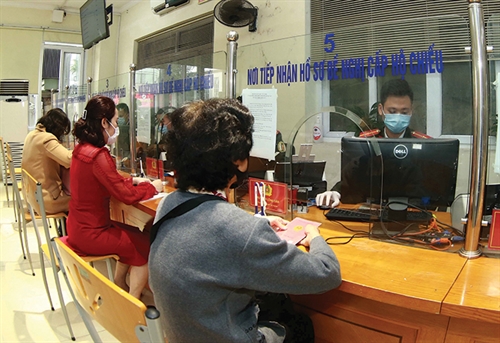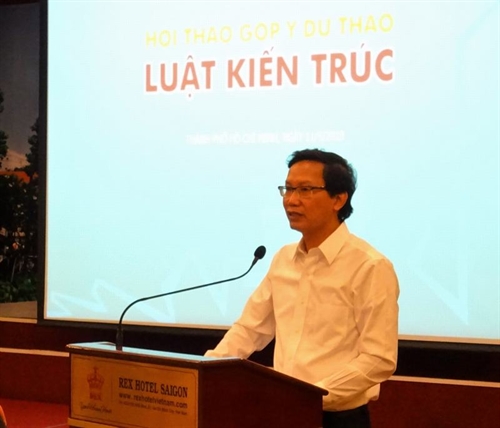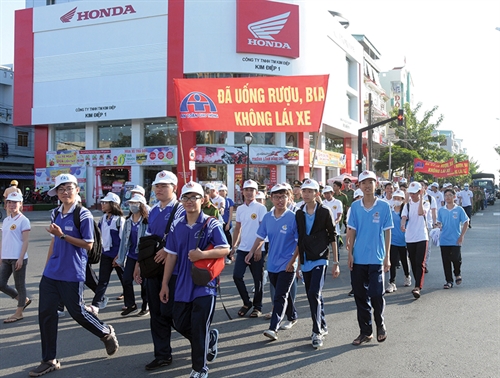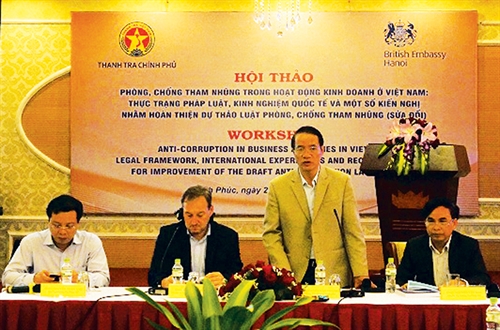The new Labor Code (the Code) was passed last November in replacement of its predecessor enacted in 2012.
Coming into force from the beginning of 2021, the Code prescribes labor standards; rights, obligations and responsibilities of employees, employers, grassroots-level employees’ representative organizations, and employers’ representative organizations in industrial relations and other relations directly associated with industrial relations; and state management of labor.
Compared to the 2012 Code, the Code has significant changes to meet new requirements of management of the labor market and international integration.
Expansion of subjects of application
Composed of 220 articles arranged in 17 chapters, the Code applies to employees, trainees, apprentices, and persons working without industrial relations; employers; and foreign workers in Vietnam. Other agencies, organizations and individuals directly involved in industrial relations are also the subjects of application of the Code.
Particularly, the Code expands the scope of application of its certain provisions to persons working without industrial relations, e.g., the provisions on hour-based minimum wage, occupational safety and health, and minor employees.
The Code gives a broadened definition of “employee”, stating that any person working under an agreement who gets paid and works under the management and supervision by an employer will be considered an employee, regardless of the name and form of agreement.
Labor contracts
The Code recognizes the validity of labor contracts entered into by electronic means in the form of a data message under the law on e-transactions, saying such contracts are as valid as written labor contracts.
According to the Code, there are only two types of labor contracts, namely indefinite-term labor contracts, and definite-term labor contracts which are those with a term of up to 36 months. Compared to the 2012 Code, the Code removes the type of seasonal or specific job-based labor contracts with a term of under 12 months.
Definite-term labor contracts may be signed multiple times for directors of state capital-invested enterprises, elderly workers, foreign workers, and members of leadership boards of grassroots-level employees’ representative organizations.
Parties may no longer alter the term of a labor contract by an annex. When such contract expires, the parties must sign a new contract.
Employers and employees may sign a separate probation contract or include a probation clause in a labor contract. During the probation period, either party may cancel the signed probation contract or labor contract without having to give an advance notice and pay compensation. In addition, the Code states that the probation period applied to enterprise managers may reach 180 days.
Regarding termination of labor contracts, the Code provides more cases where both the employer and the employee can unilaterally terminate their labor contract:
First, a labor contract with a foreign worker will be terminated if he is expelled under a court’s legally effective judgment or ruling or competent state agency’s decision, or if his work permit expires;
Second, either the employer or the employee may unilaterally terminate their labor contract when the employee reaches the retirement age.
Third, the employer may unilaterally terminate the labor contract if the employee provides untruthful information upon recruitment or has given up work at discretion without a plausible reason for five or more consecutive days.
Fourth, the employee, regardless of the term of his labor contract, may unilaterally terminate the contract without having to state the reasons, provided that he gives an advance notice as required by law.
The Code also revises the provisions on responsibilities upon the termination of labor contracts. The time limit for the employee and employer to pay money amounts related to their interests is 14 working days, instead of the current seven working days, from the date of termination of their labor contract. The employer is responsible for completing procedures for certification of the employee’s period of payment of social insurance premiums, providing copies of documents concerning the working process of the employee if so requested by the latter, and paying expenses for photocopying and sending documents.
 |
| Producing medical protective clothing at TNG Investment and Trading Joint-Stock Company in Thai Nguyen province__Photo: Tran Viet/VNA |
Foreign workers in Vietnam
If wishing to work in Vietnam, foreigners must be at least full 18 years and meet other conditions specified in Article 151 of the Code.
Under Article 152 of the Code, enterprises, agencies, organizations, individuals and contractors may only recruit foreigners in such positions as managers, executive officers, experts and technical workers in which Vietnamese employees are still unable to fulfill production and business requirements. Before recruiting foreigners to work in Vietnam, such entities must explain their labor demands and obtain written approvals from competent agencies. Particularly, contractors have to declare working positions, professional and technical qualifications, working experience, and working time for foreigners to be employed for execution of bidding packages, and obtain written approvals from competent agencies.
The validity duration of a work permit must not exceed two years and may be extended only once for another two years at most. Foreign workers in Vietnam must produce their work permits upon request of competent state agencies.
The term of the labor contract of a foreign worker in Vietnam must not exceed the term of his work permit. When the employer employs a foreign worker to work in Vietnam, the two parties may reach agreement on the entry into definite-term labor contracts for multiple times.
The Code also lists in Article 154 cases in which foreigners working in Vietnam are exempt from work permit.
Conditions, order and procedures for grant, re-grant, extension, and revocation of work permits and work permit exemption certificates for foreign workers in Vietnam will be specified by the Government.
Increase of the retirement age of employees
The retirement age of employees working under normal working conditions will be adjusted according to a roadmap until male workers reach full 62 years by 2028, or female workers reach full 60 years by 2035.
From 2021, the retirement age will be full 60 years and three months, for male workers, or full 55 years and four months, for female workers; and then annually be increased by three months for male workers or four months for female workers.
Grassroots-level employees’ representative organizations
As per the Law, grassroots-level employees’ representative organizations include grassroots-level trade union organizations and employees’ organizations at enterprises.
To date, trade union is the only representative organization of employees in Vietnam. To comply with Vietnam’s commitments under the CPTPP, EVFTA and ILO Conventions, the Code recognizes the rights of employees to establish, and join and participate in activities of, enterprise-based employees’ organizations.
Enterprise-based employees’ organizations may lawfully operate after being granted registration certificates. Their organization and operation must comply with the Constitution, laws and their charters; and adhere to the principles of voluntariness, self-management, democracy and transparency.
The Code also provides leadership boards as well as members and charters of enterprise-based employees’ organizations.
Sexual harassment at the workplace
Sexual harassment at the workplace is for the first time defined in the Code.
As required by the Code, prevention and combat of sexual harassment acts at the workplace, and the order and procedures for handling these acts must constitute principal contents of an internal working regulation.
Specifically, Article 125 of the Code says that an employee who commits a sexual harassment act at the workplace will be dismissed as a form of discippline.
To enforce the Code, 14 decrees, one decision and seven circulars will be promulgated.-









